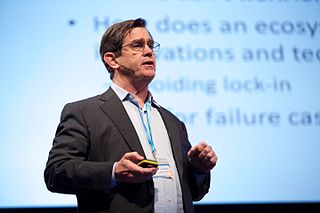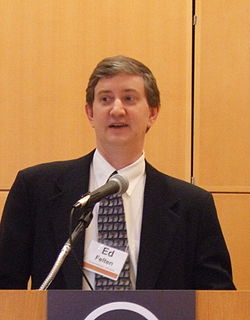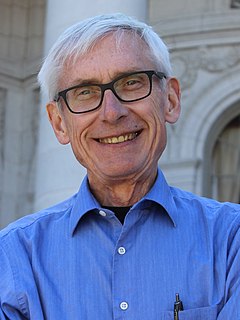A Quote by Jean-Philippe Courtois
Everything that can be associated to ideas, inventions, copyrights, and patents is part of the IP world - at least, that's my definition. That all starts with people. Education is key.
Quote Topics
Related Quotes
In a world of widely distributed knowledge, companies cannot afford to rely entirely on their own research, but should instead buy or license processes or inventions (i.e. patents) from other companies. In addition, internal inventions not being used in a firm’s business should be taken outside the company.
For one thing, there are many "inventions" that are not patentable. The "inventor" of the supermarket, for example, conferred great benefits on his fellowmen for which he could not charge them. Insofar as the same kind of ability is required for the one kind of invention as for the other, the existence of patents tends to divert activity to patentable inventions.
It's important not to overstate the benefits of ideas. Quite frankly, I know it's kind of a romantic notion that you're just going to have this one brilliant idea and then everything is going to be great. But the fact is that coming up with an idea is the least important part of creating something great. It has to be the right idea and have good taste, but the execution and delivery are what's key.


































